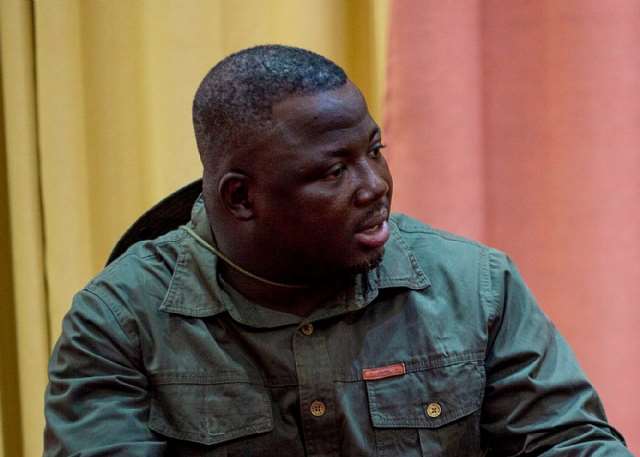The recent by-election in Ablekuma North has become a platform for political commentary, with Mustapha Gbande, Deputy General Secretary of the National Democratic Congress (NDC), leveraging the opportunity to critique the legacy of former President Nana Addo Dankwa Akufo-Addo. Gbande’s central argument revolves around the perceived failure of Akufo-Addo’s administration to deliver on its promises of development and prosperity, thereby tarnishing the image of elder statesmen in leadership positions. He contends that the former president’s performance has challenged the conventional wisdom that equates age with experience and effective governance. This critique, delivered during the Ablekuma North rerun election on July 11th, paints a picture of disillusionment with the previous administration and seeks to position the NDC as a viable alternative.
Gbande’s remarks specifically targeted the notion that older leaders inherently possess the wisdom and experience necessary for effective governance. He pointed to the perceived socio-economic challenges prevalent in Ablekuma North, citing poor infrastructure and high poverty rates as evidence of Akufo-Addo’s shortcomings. By linking these issues directly to the former president’s leadership, Gbande attempted to establish a causal relationship between age and ineffective governance, thereby undermining the traditional respect accorded to elder statesmen. This strategic move aims to resonate with voters who may be experiencing economic hardship and are looking for a change in leadership.
Furthermore, Gbande juxtaposed Akufo-Addo’s perceived failures with the purported dynamism and potential of the NDC’s candidate, Ewurabena Aubynn. He emphasized Aubynn’s energy and capacity to address the needs of the constituents, implicitly contrasting her youthful vigor with the perceived stagnation of the previous administration. This strategic comparison serves to highlight the NDC’s commitment to fresh perspectives and innovative solutions, while simultaneously casting the former president’s tenure as a period of inaction and decline. By presenting Aubynn as a “quality candidate,” Gbande sought to sway public opinion towards the NDC and secure a victory in the by-election.
The timing of Gbande’s comments is particularly noteworthy. Delivered during the Ablekuma North by-election, his critique of Akufo-Addo’s legacy takes on added significance, serving as a direct appeal to voters. By highlighting the perceived failures of the previous administration, Gbande aimed to galvanize support for the NDC candidate and position the party as a viable alternative. The by-election, held after a six-month impasse, provided a crucial opportunity for the NDC to gain ground and demonstrate its responsiveness to the needs of the electorate.
Gbande’s critique can be interpreted as a strategic political maneuver designed to capitalize on public sentiment and position the NDC favorably in the eyes of the electorate. By associating Akufo-Addo’s perceived failures with his age, Gbande attempts to create a narrative that resonates with voters who may be seeking a departure from traditional leadership models. This tactic also serves to elevate the NDC’s candidate, Ewurabena Aubynn, by portraying her as a youthful and energetic alternative capable of addressing the challenges facing the constituency.
In conclusion, Gbande’s comments during the Ablekuma North by-election represent a calculated political strategy aimed at discrediting the legacy of former President Akufo-Addo while simultaneously promoting the NDC’s candidate. By linking perceived governance failures to age and highlighting the energy and potential of the NDC’s candidate, Gbande sought to influence voter perceptions and secure a victory in the by-election. This critique, delivered against the backdrop of a closely contested election, underscores the dynamic nature of Ghanaian politics and the ongoing struggle for power and influence. Whether Gbande’s strategy will prove successful remains to be seen, but his comments undoubtedly contribute to the ongoing political discourse and shape public perceptions of leadership and governance.


